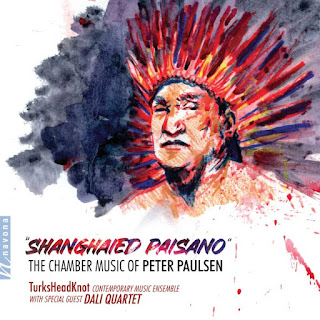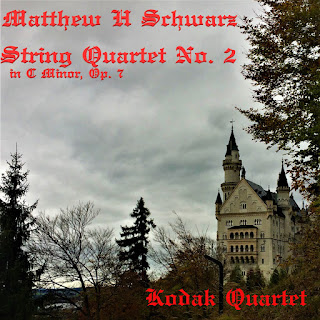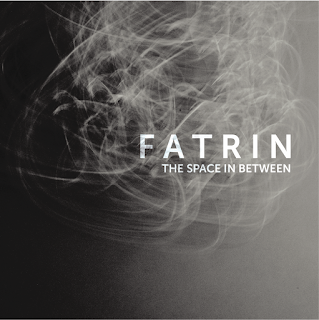Amaro Dubois - 'Luz' Album Review
Amaro Dubois - Luz Album Review
Luz continues Dubois' mission to showcase Latin American composers and music.
Amaro Dubois, viola, and Tingting Yao, piano, have collaborated to bring us Luz, an album of 20th and 21st century works for viola and piano. Distributed by Navona Records, Luz continues Dubois' mission to showcase Latin American composers and music.
Starting off the album with the titular work, Edmundo Villani-Côrtez's Luz opens heavy-handedly with its mood painting. The rising fourths arpeggios in the piano accompaniment is a gesture long associated with the rising sun and daylight. Villani-Côrtez quickly introduces a beautiful, cantabile melody in the solo viola. The rest of Luz continues in a neo-Romantic vein, as Villani-Côrtez is known and well suited to Dubois' lush playing. The duo then brings us two short and fun pieces by the African-American composer Florence Price. Elfentanz and Deserted Garden were both originally composed for violin and piano, but the warmness Dubois brings with the viola brings out Price's melodic sensibility, and it is always wonderful to see these gems of pieces being recorded and put on display by such passionate performers.
Next, the duo reserves space for all five of British composer's Sir Michael Tippett's Five Negros Spirituals originally from his large-scale oratorio, A Child of Our Time. While the piece, and others like it, has drawn controversy over both the title and claims of appropriation, the Spirituals are all simple, yet effective arrangements of classic African-American tunes. Dubois' inflection and performance successfully mimics the natural vocal element inherent in these spiritual arrangements.
Dimitri Cervo's, a praised Brazilian composer, Cantiga was written especially for Dubois. The short, concise work is a three and a half minute extended melody. The traditional-sounding tonal work combines the richness of a solo viola with rhythmic piano accompaniments, forcing Dubois and Yao to continuously play off of each other. Luz then turns back to continuing its previous repertoire, with arrangements of two short songs by the dean of African-American composers, William Grant Still. Here's One and Carmela are again beautiful examples of often neglected American music. While still expertly performed, it does sound as though these and the Price works were rushed in the recording studio.
Back to Brazil, the album continues with Heitor Villa-Lobos', often known solely for his classical guitar works, O Canto do Cisne Negro (Song of the Black Swan). The work is strongly grounded by the never-ending rolling arpeggios in the piano. Yao's confidence and musicality allows Dubois to sing cleanly overtop her accompaniment. Interlúdio V a newer piece by Villani-Côrtez, continues the melodic focused Brazilian music. Opening with a spoken quote of the composer, the piece quickly spirals into rhythmically consistent melodies merged with traditional Latin grooves and jazz like enclosures.
Luz comes to a close with new works by Mexican composer and engineer José Elizondo. His music is bright and cheerful, combining stereotypical melodic passages with engaging accompanimental lines. The Dawn of Hope, presented here in a version for viola and piano, fits with the theme of the album, as the music journeys out of darkness and into the rising sun. While quite compelling, the overuse of harmonic clichés and quotation, especially prominent Beethoven ones, does take its toll, making the musical tension significantly less effective. The second set of pieces, Danzas Latinoamericanas, three Latin-American dances, also rely heavily on musical cliché. However, the entertaining nature of the music plays well into these clichés, making the music much more interesting. The second dance, "Sugar Loaf Mountain", has an incredibly virtuosic and captivating opening in the solo piano, combining Bach with a contemporary pluckiness. Elizondo allows this space for Yao to really shine as a pianist, before returning to a pleasant legato melody for the viola.
As required of any complete recital dedicated to Latin music, Luz ends with an energetic performance of Zequinha de Abreu's rambunctious choro tune Tico-tico no Fubá. A perfect finale, Tico-tico exemplifies the virtuosic technical abilities of both Dubois and Yao, while going out with a bang.
find Luz on all major streaming services or purchase here
© 2023 Brutal New Music Reviews




Comments
Post a Comment